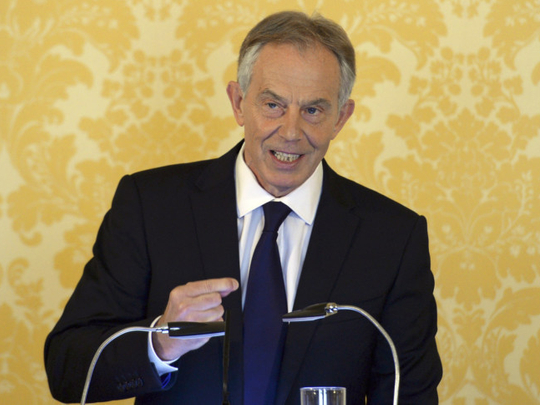
After seven years of investigation, the Chilcot report on Britain’s involvement in the invasion and occupation of Iraq, was released on July 6. After all is said and done, the conclusions of the lengthy 2.6 million-word document offered little new information on the 2003 Anglo-American conspiracy to topple the then Iraqi president, Saddam Hussain, on the pretext of possessing weapons of mass destruction (WMDs) that he seemingly could deploy within hours. No such weapons were found because, as the CIA knew almost eight years before, Saddam had destroyed his chemical and biological arsenal following his military defeat in the first Gulf War.
The report confirms the sad and chilling fact that the war on Iraq was not inevitable and that the United Kingdom chose to join the invasion before the peaceful options for disarmament had been exhausted. It also tells how former United States president George W. Bush and former British prime minister Tony Blair prepared the international scene for the invasion months before and that both men committed themselves to war even when evidence of Iraq’s WMDs were flimsy and the legality of military action in question. Blair manipulated the facts, withheld key information from his Cabinet and repeated untrue claims about the dangers that the Saddam regime posed. The report concluded that Saddam was not an imminent threat.
What is perhaps relevant today is the report’s revelation that Blair was warned by the Joint Intelligence Committee (JIC) back in early 2003 that an Iraq war would heighten the threat from Al Qaida and other extremists. “The broader threat from terrorists will also increase in the event of war, reflecting intensified anti US/anti western sentiment in the Muslim world, including among Muslim communities in the West,” the JIC said, according to the report.
Two other conclusions in the report say that the “the UK failed to plan or prepare for the major reconstruction programme required in Iraq,” and that “the military lacked a full appreciation of the political, cultural and ethnic tensions in Iraq”, thus contributing to the fuelling of sectarian tensions. It concluded that “the UK military role in Iraq ended a very long way from success”.
Despite these damning conclusions, which found that Blair pushed Britain into the Iraq war without evidence or a plan, the report cleared him of any deliberate deception. On his part, Blair responded by defending his position, taking full responsibility for the decision, but was clearly unrepentant. In his view, the world today is safer without Saddam. He insisted that although mistakes had been made, the decision to join the US-led invasion had been the right one.
There is no doubt that the invasion and occupation of Iraq remains one of the worst political decisions in modern history. Its reverberations are being felt in Iraq, the region and the world every day and will be with us for many years to come. It destroyed a country, dismantled its institutions, triggered bloody sectarian and ethnic wars, paved the way for the expansion of Al Qaida and the birth of Daesh (the self-proclaimed Islamic State of Iraq and the Levant), allowed Iran to impregnate the political, military and economic structures of Iraq and launched a cycle of violence that the world had not seen in decades. It is difficult to accept that the unfolding post-invasion scenario was not anticipated by decision-making circles in both the US and the UK.
It is also difficult not to view the Chilcot report as an indictment of Blair and by extension his partner-in-crime, Bush. The war has cost both countries hundreds of billions of dollars, thousands of US and UK casualties and millions of Iraqi dead, injured and displaced. It failed to rebuild Iraq or bring democracy to the ill-fated country. In fact, it allowed a new form of dictatorship to emerge, especially under former Iraqi prime minister Nouri Al Maliki, who is directly responsible for the pillaging of Iraq, the creation of death squads, the deepening of the sectarian strife and the loss of large swaths of territory, including Iraq’s second largest city Mosul, to Daesh.
And yet, we know that the war was an illegal one and that both the US and the UK misled the United Nations Security Council and the international community and more importantly their own citizens. It is inconceivable that both Blair and Bush remain immune to criminal charges despite overwhelming evidence against them.
To evade prosecution and accountability for an illegal war that continues to claim innocent lives on a daily basis is a stain on the face of the UN and the international community. The Chilcot report should not be the end of the road in looking into the Iraq war and its catastrophic consequences. It should provide a building block for more inquiries that seek to put those responsible for continuing carnage and chaos on trial in the future.
Osama Al Sharif is a journalist and political commentator based in Amman.









